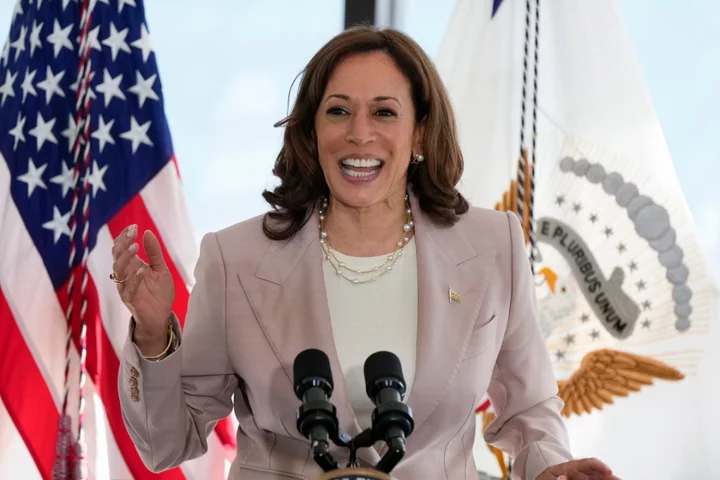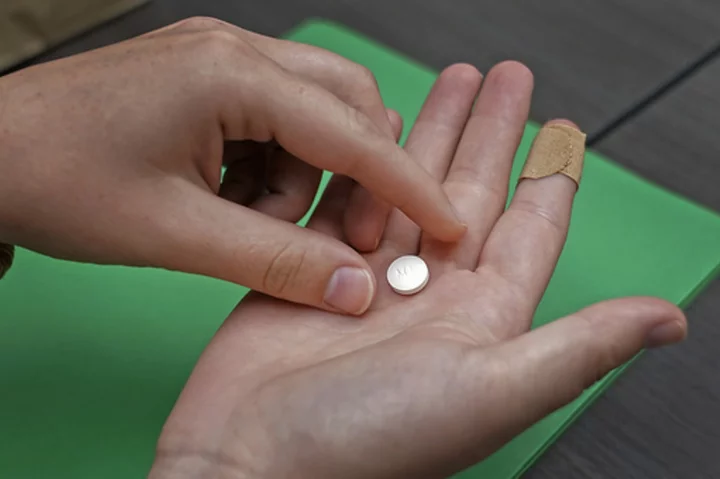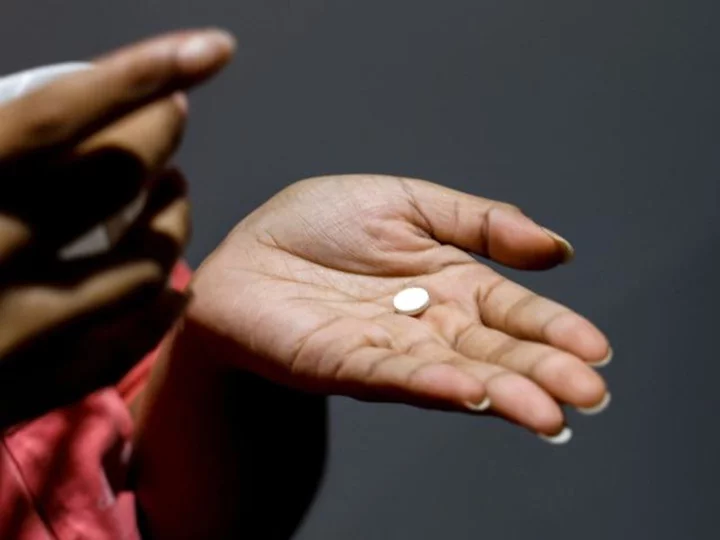Kamala Harris says goddaughter’s friends are choosing college towns on abortion legalisation
Vice President Kamala Harris has said she knows of young people choosing which college they want to attend based on how restrictive the abortion laws are in that state. Commenting in an interview for the Roe v Wade retrospective on MSNBC’s The ReidOut, Ms Harris said her goddaughter told her that her friends wanted to attend schools in states where there was more freedom in terms of reproductive rights. Ms Harris told the roundtable: “When the decision came down she told me ‘Do you know what’s happening? My friends – whatever gender – are starting to make decisions about where they will actually go to college depending on what’s happening in that state.’” “Because of course, if you look at it, I think the number is something like 23 million women of reproductive age live in states that have banned abortion, and what that is gonna mean for those 23 million, for the myriad of health care issues that are at stake ... It’s having a real impact on all types of decisions people make,” she added. The show took a look back at the decision to overturn the landmark Roe v Wade decision that legalised abortion in the US in 1973 when the Supreme Court ruled that “unduly restrictive state regulation of abortion is unconstitutional”. In 2022, the Supreme Court, packed with three Trump-era appointees, overturned Roe v Wade and returned decisions on abortion freedom to the states. Since then, a number of states have introduced effective abortion bans that limit the procedure to the very early days of pregnancy – often before women are aware they are pregnant. Some states have also criminalised assisting women with accessing abortion, and limited abortion to cases of rape or incest. Ms Harris said that the Supreme Court’s decision last year had infringed on women’s rights. “The idea that the highest court in our land just did that and rolled back rights that had been recognized was incredibly shocking,” she said on MSNBC. She said that after she learned the news of the ruling, she called her husband and shared some “words not meant for television at this moment”. Ms Harris went on to say that the ruling means that some have to “suffer in silence,” the thought of which made her “angry and sad”. Read More Where abortion laws stand in every state a year after the Supreme Court overturned Roe A year after fall of Roe, 25 million women live in states with abortion bans or tighter restrictions Judge to weigh suspending Wyoming's first-in-the-nation ban on abortion pills US prepares for potential end of Roe v Wade - live When will there be a Roe v Wade decision? Why these prosecutors are refusing to enforce anti-abortion laws
Vice President Kamala Harris has said she knows of young people choosing which college they want to attend based on how restrictive the abortion laws are in that state.
Commenting in an interview for the Roe v Wade retrospective on MSNBC’s The ReidOut, Ms Harris said her goddaughter told her that her friends wanted to attend schools in states where there was more freedom in terms of reproductive rights.
Ms Harris told the roundtable: “When the decision came down she told me ‘Do you know what’s happening? My friends – whatever gender – are starting to make decisions about where they will actually go to college depending on what’s happening in that state.’”
“Because of course, if you look at it, I think the number is something like 23 million women of reproductive age live in states that have banned abortion, and what that is gonna mean for those 23 million, for the myriad of health care issues that are at stake ... It’s having a real impact on all types of decisions people make,” she added.
The show took a look back at the decision to overturn the landmark Roe v Wade decision that legalised abortion in the US in 1973 when the Supreme Court ruled that “unduly restrictive state regulation of abortion is unconstitutional”.
In 2022, the Supreme Court, packed with three Trump-era appointees, overturned Roe v Wade and returned decisions on abortion freedom to the states.
Since then, a number of states have introduced effective abortion bans that limit the procedure to the very early days of pregnancy – often before women are aware they are pregnant. Some states have also criminalised assisting women with accessing abortion, and limited abortion to cases of rape or incest.
Ms Harris said that the Supreme Court’s decision last year had infringed on women’s rights.
“The idea that the highest court in our land just did that and rolled back rights that had been recognized was incredibly shocking,” she said on MSNBC.
She said that after she learned the news of the ruling, she called her husband and shared some “words not meant for television at this moment”.
Ms Harris went on to say that the ruling means that some have to “suffer in silence,” the thought of which made her “angry and sad”.
Read More
Where abortion laws stand in every state a year after the Supreme Court overturned Roe
A year after fall of Roe, 25 million women live in states with abortion bans or tighter restrictions
Judge to weigh suspending Wyoming's first-in-the-nation ban on abortion pills
US prepares for potential end of Roe v Wade - live
When will there be a Roe v Wade decision?
Why these prosecutors are refusing to enforce anti-abortion laws









